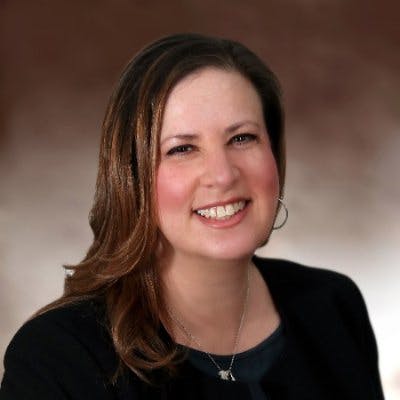
Prescriptions can be costly, even with insurance. Programs like GoodRx can sometimes save you money.
Have you experienced sticker shock at your pharmacy recently? If so, join the club. Eleven percent of Americans aged 65 and older – that’s 6 million people! – say they’ve skipped prescription meds to save money.
Even with Medicare Part D, you may find that you still sometimes pay a couple of hundred dollars out of pocket for certain prescriptions. Wondering about a cheaper option? That’s where GoodRx can come in.
GoodRx is a website and mobile app that allows you to type in the medication you’re looking for, and then finds out where you can get the lowest price. A 30-day prescription of sildenafil (Viagra), for example, is $378.91 out of pocket without insurance. But with a GoodRx coupon, that number could drop as low as $8.50. And the antidepressant duloxetine (Cymbalta) is $213.66 out of pocket – but with GoodRx, it drops down to $7.99.
There’s just one catch: You can’t use GoodRx with Medicare. But in certain situations, it may be worth paying out of pocket with GoodRx rather than going through insurance. Sometimes, for example, Medicare doesn’t cover your drug at all. “The problems are the more expensive brand-name medications,” Katy Votava, president and founder of Goodcare, a Medicare consulting firm, told Yahoo Finance this past April. “That can be difficult for people, and they’re often based on medical necessity and prior authorization is typically required.”
When should you consider using GoodRx?
It often makes sense to pay for your prescriptions through Medicare. After all, prices, especially for generic medications, are often very cheap, and if you use a site like GoodRx, you’ll pay out of pocket, which doesn’t count towards your annual deductible. But there are a few situations where you’ll want to consider it. They include:
Your medication isn’t covered by Medicare
If Medicare doesn’t cover your medication, the amount you pay won’t count toward your deductible. You should definitely shop around on the GoodRx site, and compare prices.
When you probably won’t hit your deductible
During the first phase of your Part D plan, you pay 100% of costs until you hit the plan’s deductible. Only at that point does your plan begin to kick in. If you don’t think you’ll have enough prescription costs to reach that point, you might as well opt for the cheaper GoodRx price.
When GoodRx prices are cheaper than your co-pay
After you hit your deductible, you’ll be in the initial coverage phase of your Part D plan. During this phase, you’ll pay 25% of your prescription medication costs in the form of co-pays and co-insurance. If the GoodRx price beats your Medicare copay, you may want to consider it.
Learn more about the four phases of Medicare Part D.
If you decide to use a GoodRx coupon, let the pharmacist know so that they don’t run your prescription through your Medicare part D plan. Instead, give them the GoodRx coupon. They will process the payment as cash.
There are also other cash only prescription discount cards you can try, like Optum Perks, SingleCare, and Blink Health. But they don’t have as large of a pharmacy network as GoodRx.
Other ways to lower prescription costs
There are things you can do to lower your medication costs, even if you don’t opt for a site like GoodRx. They include:
Switch to generics
They work just as well as the pricey brand-name ones you take now. Ask your doctor if a generic is an option for you. You may be able to lower the cost even further if you use a mail-order pharmacy.
Sign up for a savings program
The Walgreens Prescription Savings Club Program, for example, allows you to fill prescriptions for hundreds of generic drugs for no more than $15 for a 30-day supply, or $30 for a 90-day supply – even without insurance. Other supermarkets, like Kroger, offer discounted generic drug programs.
Explore online pharmacies
Some online pharmacies, like the Mark Cuban Cost Plus Drug Company, sell more than 700 generic prescription drugs at lower-than-retail prices. Cost Plus, for example, offers the cancer drug imatinib (Gleevec) for $39 for a 30-day supply, compared with the $9,657 list price. Like GoodRx, however, you won’t be able to use insurance.
Look for Medicare plans that cover your medications
Whichever online pharmacy you choose, make sure it:
● Requires a valid prescription from a licensed healthcare professional
● Is licensed by your State Board of Pharmacy
● Has a U.S. state-licensed pharmacist available
● Carries the National Association of Boards of Pharmacy Verified Internet Pharmacy Practice Sites (VIPPS) seal
Apply for assistance
Some drug companies offer programs to help pay for medications for people who have Medicare drug coverage. You can see if there is a pharmaceutical assistance program for your particular drug here. Some states also offer help paying for prescriptions or drug plan premiums, too. Find out if your state has one here.
Finally, both Medicare and Social Security have a program called Extra Help, for people with limited income and resources. If you qualify, you could pay no more than $4.15 for each generic drug, and $10.35 for every brand-name drug, in 2023. You can apply here.
Double check your meds
More than half of adults ages 65 and older say they take at least four prescription drugs. But many of those may not be necessary. Your doctor’s office or pharmacist can review all of your medications once a year to make sure you’re taking the right ones. This medication check is usually covered by Medicare.
Make sure you have the right Medicare plan
It’s important to review your medication coverage every year during Annual Enrollment, even if you’re still in the same plan. (For Medicare Part D, Annual Enrollment ends December 7.) You’ll want to check that your current plan has the following:
● Your current regular medications in its formulary (the list of all the medications your insurance company covers).
● Your current pharmacy in its network. This may help lower your copayments.
● Additional medication coverage in the coverage gap. This means that if you hit the donut hole, your plan still pays for more. These plans charge a higher premium.
Keep in mind that fewer than 5% of people ever reach the coverage gap, so you should figure out if you’re likely to be one of those people before paying for the additional medication coverage. Call 888-992-0738 to talk to one of our licensed agents who can help you figure out the right policy for you.
Additional resources
Gallup: Older Adults Sacrificing Basic Needs Due to Healthcare Costs
Kaiser Family Foundation: Prescription Drugs and Older Adults



